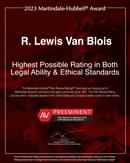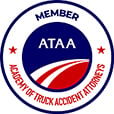Every winter, many people are severely injured or killed by commercial semi-truck drivers who violate the law by driving in adverse weather conditions. It takes longer to stop and is more difficult to turn without skidding when the road is slippery. If the road is very slippery, truck drivers should not drive their trucks at all. Many big rig truck drivers do not slow down during bad weather. Most catastrophic bad weather truck accidents could have been avoided if truck drivers would have followed the law.
The law regarding commercial trucking in bad weather is in the Federal Motor Carrier Safety Regulations, Section 392.14:
Extreme caution in the operation of a commercial motor vehicle shall be exercised when hazardous conditions, such as those caused by snow, ice, sleet, fog, mist, rain, dust, or smoke, adversely affect visibility or traction. Speed shall be reduced when such conditions exist. If conditions become sufficiently dangerous, the operation of the commercial vehicle shall be discontinued and shall not be resumed until the commercial motor vehicle can be safely operated.
This section requires extreme caution when a semi-tractor-trailer is operated in hazardous conditions such as snow, ice or heavy fog. If conditions become sufficiently dangerous, the truck driver must pull off the road and discontinue driving until conditions improve and driving is safe.
The reason truck drivers continue to operate their tractor-trailers in adverse dangerous weather conditions can often be the fault of the trucking company that employs them. The pressure of delivering a load on time often results in the truck driver taking dangerous unsafe risks. Often truck companies do not provide detailed weather conditions to their drivers.
Many times the investigating traffic collision officer will include an estimate of visibility when there is dense fog. Locating eye witnesses with knowledge of the weather conditions is important in proving liability for driving in hazardous weather. Local meteorologists can provide expert testimony about adverse weather conditions in winter weather accident cases.
The Van Blois & Associates has been successful in hazardous weather cases when visibility has been severely limited by heavy fog. In one case a truck driver pulled out onto Highway 4 in Stockton when there was extremely thick fog reducing visibility to less than 150 feet. A father driving his young daughter to school on Highway 4 could not see the tractor-trailer blocking the highway in time to stop. He was killed and his daughter was injured. We used FMC-SR Section 392.14 to prove liability on the part of the truck driver who never should have been driving in the extremely dangerous weather conditions.
Although the law prohibits the driving of big rig trucks in hazardous weather conditions, many truck drivers continue to operate their trucks in dangerous weather conditions. The truck drivers who do drive in hazardous weather conditions, or refuse to slow down, increase the risk of harm to all drivers.






















